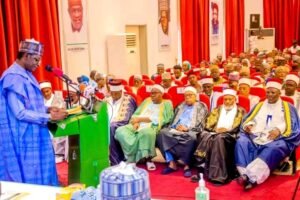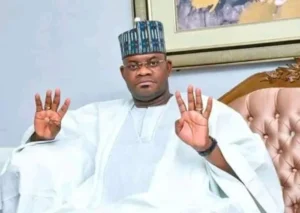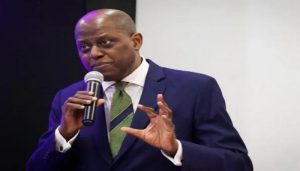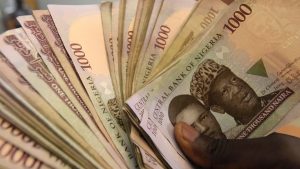
The African Development Bank (AfDB)’s African Economic Outlook report 2022 (AEO) has made an extraordinary impression on leading policymakers in the United States and the United Kingdom who have described the document as evidence-based.
According to documents made available yesterday, a delegation of AfDB Group led by its Acting Chief Economist and Vice President, Kevin Urama, was in Washington D.C from July 20 to 29 and London on August 1 and 21 to discuss the AEO, a flagship publication of the Bank, unveiled in Accra, Ghana, during its yearly general meeting in May.
The verdict from the hosts was clear as they endorsed the publication as a very useful resource for the regional economy. From the International Monetary Fund (IMF) to the World Bank, the Centre for Global Development, Brookings Institution, the Atlantic Council and the University College London, speakers agreed that the AEO provided evidence-based policy options for achieving inclusive growth.
“If we want to avoid reinventing the wheel about the climate narrative, then the AEO 2022 is a must-read as we prepare for COP 27, ‘Africa’s COP’,” the Director of the Africa Growth Initiative at the Brookings Institution, Aloysius Uche Ordu, said.
Ordu also offered actionable policy frameworks that should form the basis for discussions on how to support Africa’s climate resilience at COP 27, the United Nations climate conference scheduled to hold in Egypt in November.
Also speaking, a professor of energy and development policy at the University College London, Yacob Mulugetta, observed that the outlook captures how low-carbon transitions in Africa differ country by country.
“What this means is that transformational socio-economic opportunities must be at the forefront of the green energy transition. This will require new technologies as well as climate finance…which is additional finance beyond official development assistance,” Mulugetta said at a seminar for policy stakeholders in the UK.
CEO of the Bezos Earth Fund, Andrew Steer, described the research document as “an excellent report that lays out beautifully this sobering time for Africa, in particular, but actually for the whole world”.
He spoke about the consequences of “a slowing world economy, the perfect storm of rising food prices, rising energy prices, rising interest rates, shocking increases in the impact of climate change and green vulnerability at a time when international resources are not what they need to be”.
At IMF’s headquarters in Washington D.C., Director of the African Department at the Fund, Abebe Selassie, admitted that African policymakers faced the unenviable task of securing trillions of dollars in investment in the transition to cleaner energy.
Selassie said the findings of the regional economic outlook were “sobering” and observed that the publication “raised some profound issues”.
In some of his presentations, Urama called on the world to treat climate finance with the same zeal it approached the COVID-19 pandemic. He said keeping to their commitment to providing $100 billion in climate finance to developing countries by the developed countries to support climate adaptation and mitigation would be a good start.
“Africa is facing high climate vulnerability. Climate change affects millions. 600 million Africans are without electricity. To create jobs and reduce poverty, Africa needs energy. Bold, innovative financing ideas abound. Now is the time to leverage them,” the VP said.
Weaved around the theme ‘Supporting Climate Resilience and a Just Energy Transition in Africa’, the report covers comprehensively policy options different countries in Africa would necessarily adopt to transition to cleaner energy. It considers global moves without losing sight of the peculiarities of Africa and its diverse







